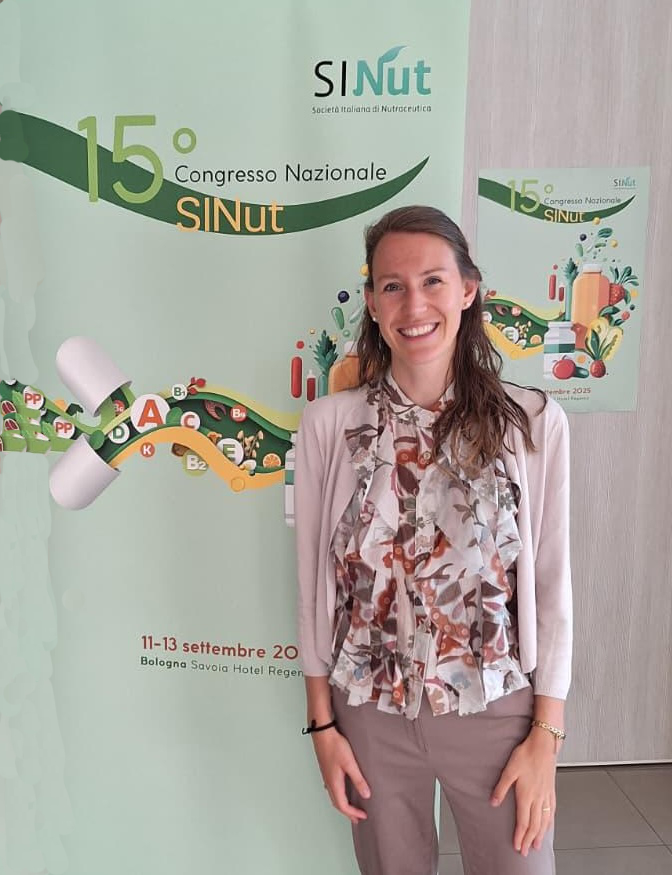At the 15th National Congress of the Italian Society of Nutraceutics (SINut) – which took place in Bologna from 11 to 13 September – Dr. Giulia Martinelli, research fellow at the Pharmacognosy Laboratory, presented the paper entitled “New insights into the in vivo beneficial role of ellagitannins during H. pylori infection”.
Ellagitannins are a class of polyphenols widely present in numerous fruits common in the Mediterranean diet, such as nuts, berries (strawberries, blackberries, raspberries), pomegranates, and chestnuts. These compounds exhibit a certain stability in the stomach, where they primarily exert their biological activity.
In vivo and in vitro studies, including those conducted by the Laboratory of Pharmacognosy on chestnut ellagitannins (castalagin and vescalagin), have demonstrated their ability to counteract bacterial colonization and the inflammatory and immune response triggered by H. pylori infection. Given the limitations of antibiotic treatment, ellagitannins appear to be valuable adjuvants in a nutritional and pharmacological approach to managing H. pylori-related diseases, thanks to their anti-inflammatory and antibacterial properties.

